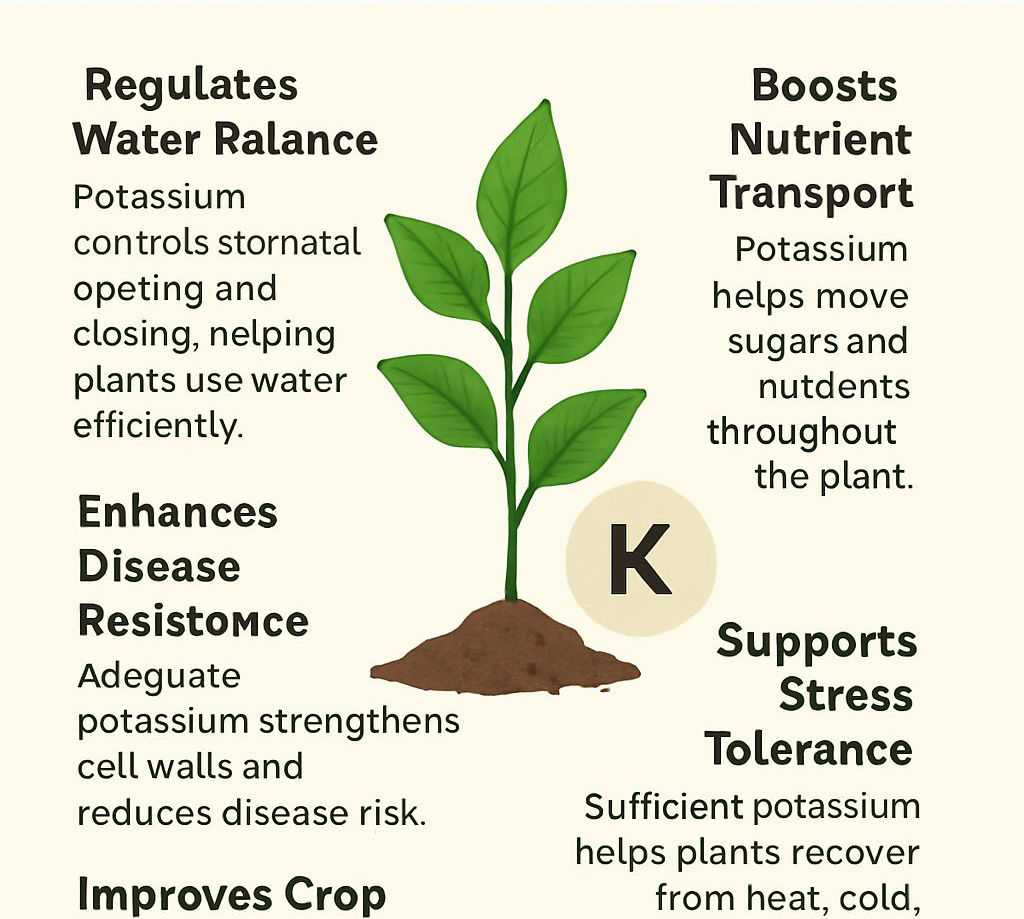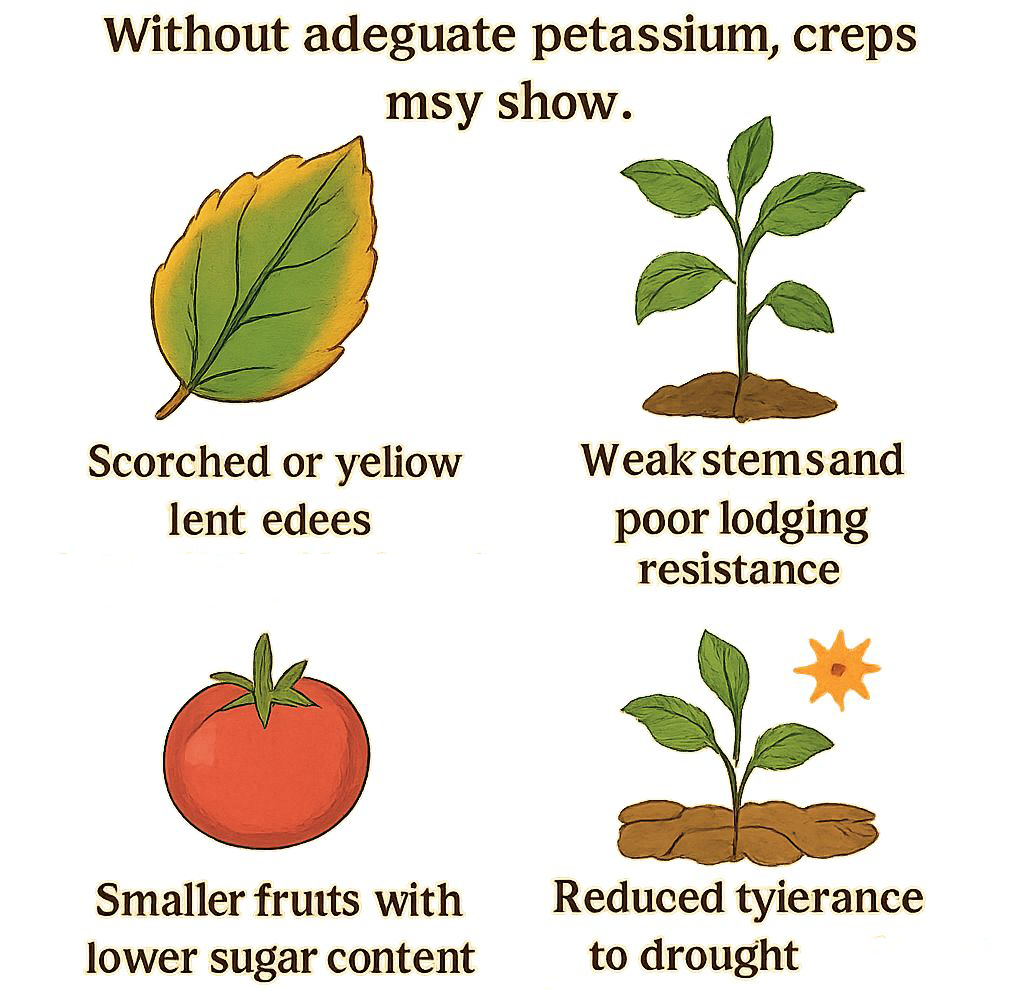K:The Importance of Potassium in Crop Production
The Importance of Potassium in Crop Production: Enhancing Plant Health and Stress Tolerance
Keywords: potassium in agriculture, potassium fertilizer, plant stress resistance, crop quality, water-soluble fertilizers, potassium benefits
Introduction
Potassium (K) is often called the “quality nutrient” in plant nutrition, and for good reason. It doesn’t form part of any plant structure like nitrogen or phosphorus, but it regulates almost every key physiological process. From water regulation and enzyme activation to disease resistance and improved crop quality, potassium plays a crucial role in sustainable crop production.
How Potassium Supports Crop Growth

Potassium contributes to plant health in several major ways:
Regulates Water Balance: Potassium controls the opening and closing of stomata, helping plants maintain water efficiency and withstand drought.
Enhances Disease Resistance: Adequate potassium improves plant cell wall strength and reduces susceptibility to pathogens.
Improves Crop Quality: Potassium increases the size, color, taste, and shelf life of fruits and vegetables.
Boosts Nutrient Transport: It aids in the movement of sugars and nutrients throughout the plant, essential for energy use and storage.
Supports Stress Tolerance: Crops with sufficient potassium recover faster from weather extremes such as heat, cold, and wind.
Symptoms of Potassium Deficiency

Without adequate potassium, crops may show:
Scorched or yellow leaf edges (especially in older leaves)
Weak stems and poor lodging resistance
Smaller fruits with lower sugar content
Reduced tolerance to drought and temperature swings
Identifying and correcting potassium deficiency early can make a significant difference in final yield and crop quality.
Best Practices for Potassium Fertilization
To get the most out of potassium fertilizers:
Time Applications Wisely: Apply before key growth stages like flowering and fruiting.
Match to Crop Needs: Different crops have varying potassium demands—potatoes, tomatoes, and bananas, for example, are heavy users.
Avoid Leaching: Potassium can be lost in sandy soils, so split applications or fertigation can improve efficiency.
Why Our Water-Soluble Fertilizers Are the Better Potassium Source
Our water-soluble fertilizers are formulated with highly available potassium that dissolves quickly and delivers targeted nutrition when your crops need it most. Whether used in foliar sprays or drip irrigation systems, our fertilizers improve potassium uptake, enhance crop performance, and reduce nutrient loss—making them the ideal choice for precision agriculture and high-value crops.

 English
English Español
Español

